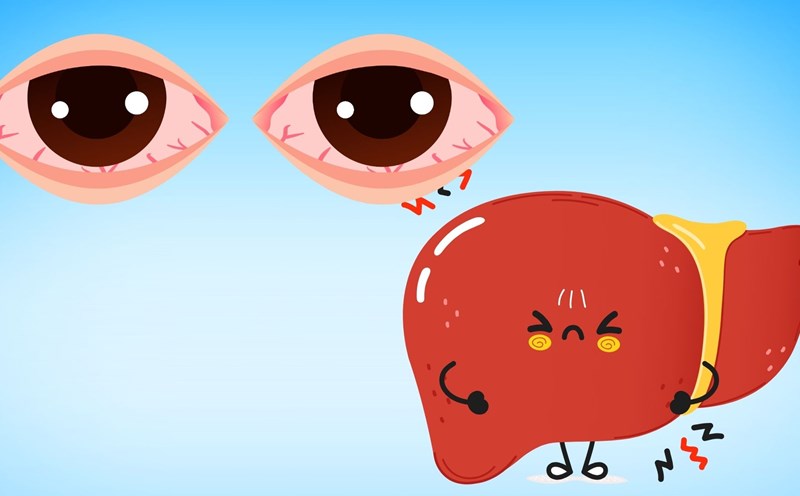Many people subjectively ignore the initial signs, until the liver damage has become serious. One of the most common signs is prolonged fatigue of unknown cause.
If you feel sluggish and lack energy for many weeks, even though your diet and sleep are normal, it is very likely that your liver is not functioning effectively. When the liver cannot filter toxins and metabolize nutrients normally, the body falls into a state of energy deficiency.
People with chronic liver disease often described themselves as having an exhaustion of energy although other tests are normal, says Dr. Jennifer Caudle, a medical lecturer at Rowan University.
Another silent but noteworthy sign is prolonged itchy skin of unknown cause. A feeling of itching, especially at night, without a rash or specific allergy, can be a sign of fatty liver disease. When bile is accumulated, the sale of bile settles under the skin and causes prolonged itching - commonly found in liver diseases such as primary Phiemia giarrhea.
Anorexia, bloating, and persistent indigestion are also easily overlooked manifestations, because they are easily confused with common digestive problems. However, when the liver is damaged, the ability to secrete bile and metabolize fat is affected, leading to a feeling of loss of appetite and prolonged indigestion.
The report of the American liver Foundation emphasizes: Cronic liver disease disrupts the intestinal microflora and reduces absorption, making patients always feel uncomfortable after eating.
One of the more obvious signs, but often appear late, is jaundice and yellow eyes. However, in the early stages, this manifestation is often temporary: mild darkness or whites of the eyes that are slightly yellow - which can easily be overlooked if not paid close attention. Finally, prone to bruising or bleeding to the toothbrush can be a sign of weak liver. Because the liver is the place that produces clotting factors, when this function is affected, the patient is prone to bleeding even if it is just a minor collision.
According to the World Health Organization (WHO), more than 1 million people die from liver disease each year, mainly due to late detection.
Professor Anna Lok - President of the American liver Research Association - recommends: " regular liver enzymes check, maintain a healthy lifestyle and pay attention to unusual signals - that is a simple but essential way to protect these quiet liver leaves".
The liver does not require or report pain. But if you know how to listen, it is still speaking - with the smallest signals.











